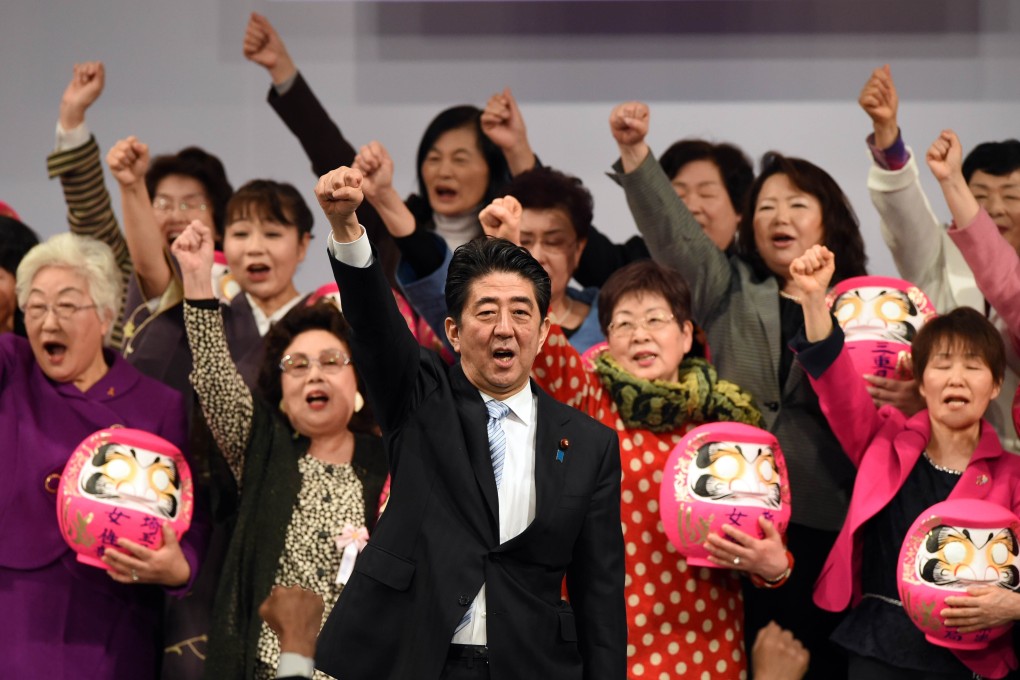Bittersweet Suga: Shinzo Abe wanted Japanese women to ‘shine’ in politics. What happened?
- Japan’s outgoing prime minister once championed ‘womenomics’, but as he departs the race to succeed him – led by Yoshihide Suga – is a very male affair
- While there are high-profile women politicians, such as Tomomi Inada, Seiko Noda and Yuko Obuchi, a glass ceiling prevents them reaching the top spot

Suga, former defence minister Shigeru Ishiba and Fumio Kishida, head of the party’s policy council, have this week been communicating their ambitions for the nation should they be elected, with the economy, dealing with the coronavirus pandemic and relations with Japan’s neighbours the key talking points of their campaigns.
And that is precisely why a new perspective, a female perspective, is required, women say.

04:20
Yoshihide Suga set to become Japan’s next prime minister after winning ruling party leadership
“When Abe first said that he wanted Japanese women to ‘shine’, I immediately thought what an odd word to choose,” said Mieko Nakabayashi, who was a politician with the opposition Democratic Party of Japan and is now a professor at Tokyo’s Waseda University.